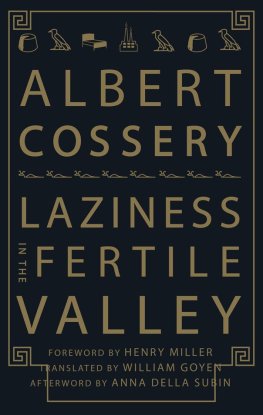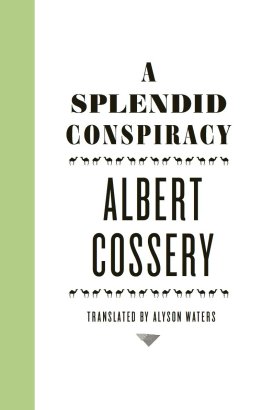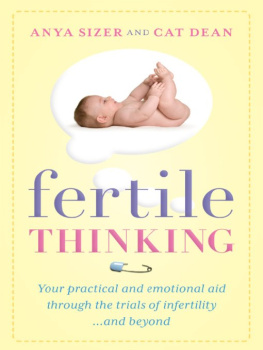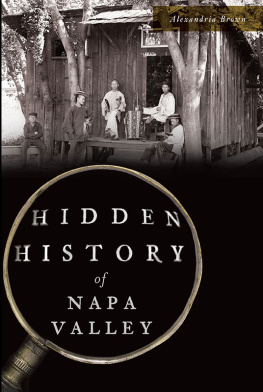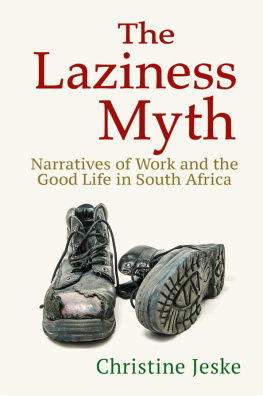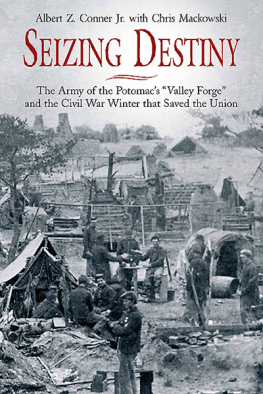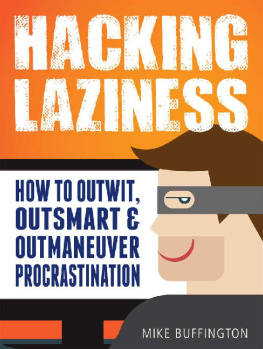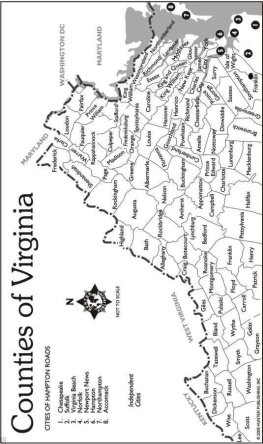Albert Cossery - Laziness in the Fertile Valley
Here you can read online Albert Cossery - Laziness in the Fertile Valley full text of the book (entire story) in english for free. Download pdf and epub, get meaning, cover and reviews about this ebook. year: 2013, publisher: New Directions Publishing Corporation, genre: Prose. Description of the work, (preface) as well as reviews are available. Best literature library LitArk.com created for fans of good reading and offers a wide selection of genres:
Romance novel
Science fiction
Adventure
Detective
Science
History
Home and family
Prose
Art
Politics
Computer
Non-fiction
Religion
Business
Children
Humor
Choose a favorite category and find really read worthwhile books. Enjoy immersion in the world of imagination, feel the emotions of the characters or learn something new for yourself, make an fascinating discovery.
- Book:Laziness in the Fertile Valley
- Author:
- Publisher:New Directions Publishing Corporation
- Genre:
- Year:2013
- Rating:5 / 5
- Favourites:Add to favourites
- Your mark:
- 100
- 1
- 2
- 3
- 4
- 5
Laziness in the Fertile Valley: summary, description and annotation
We offer to read an annotation, description, summary or preface (depends on what the author of the book "Laziness in the Fertile Valley" wrote himself). If you haven't found the necessary information about the book — write in the comments, we will try to find it.
Laziness in the Fertile Valley — read online for free the complete book (whole text) full work
Below is the text of the book, divided by pages. System saving the place of the last page read, allows you to conveniently read the book "Laziness in the Fertile Valley" online for free, without having to search again every time where you left off. Put a bookmark, and you can go to the page where you finished reading at any time.
Font size:
Interval:
Bookmark:
Albert Cossery
Laziness in the Fertile Valley
FOREWORD
Albert Cossery is a young Egyptian, born in Cairo, who spent a number of years in Paris and writes his books in French. He is rapidly gaining recognition not only in the French-speaking world but in England and soon, we expect, in America. All his books have been translated into Arabic and are creating a stir in the Near and Middle East. They are destined, in my opinion, to be translated into many tongues, for their appeal is universal. He writes exclusively about the unalleviated misery of the masses, about the little men, the forgotten men men, women and children, I should say forgotten of God. No living writer that I know of describes more poignantly and implacably the lives of the vast submerged multitude of mankind. He touches depths of despair, degradation and resignation which neither Gorky nor Dostoevsky has registered. He is dealing, of course, with his own people, whose misery began before Western civilization was dreamed of. Despite the seemingly unrelieved gloom and futility in which his figures move, the author nevertheless expresses in every work his indomitable faith in the power of the people to throw off the yoke. Usually this hope is voiced by one of the characters apparently without hope. It is not a shout which is given forth but a quiet, determined affirmation like the sudden appearance of a bud in the darkest hour of the night.
Cossery gives tongues to the speechless ones. Naturally, they do not speak like the professional agitators indoctrinated with Marxism. Their language is childlike, simple to the point of foolishness, but pregnant with a meaning which, when understood by those in power, will cause them to tremble and shudder. Often they express themselves in fantasy, a dream language which, in their case, demands no psychoanalytical interpretation. It is as clear as the handwriting on the wall. In effect, this is precisely what Cossery is doing writing his message on the wall! Only, he is not speaking for himself but for the multitude. He does not revel in the horrors of misery, as might be imagined from a cursory glance; he is heralding the coming of a new dawn, a mighty dawn from the Near, the Middle and the Far East.
His books are saturated with a mordant, savage humor which makes one laugh and weep at the same time. There is no separation between the author and the pitiable figures he depicts. He is not only for them, he is of them too. In expressing their vagaries, one feels that Albert Cossery is also just learning to use his voice, to use it in a new way, a way that will never be forgotten. To a Westerner, especially an American, his types will probably seem outlandish and ridiculous, almost incredible. We have forgotten that men can sink so low; we know nothing of this abysmal level of existence, not even in our most backward regions. But I am assured by those who know that there is nothing the least incredible, the least fantastic, about Cosserys creatures or their situation. He has given us a reality all too real, incredible only that in such an enlightened era such things can be.
HENRY MILLER, 1945
LAZINESS IN THE FERTILE VALLEY
I
The child loaded his slingshot, held his breath, and aimed carefully. Then he fired with his head thrown back and his mouth open, his whole face shining with a strange excitement. The rock flew like an arrow, whistling, and disappeared in the branches of the sycamore. All the birds flew away with little cries of fright. He had missed.
Serag remained motionless, standing on the embankment that bordered the field of corn. He had been watching the child a boy of ten, full of violence, with immense bulging eyes and the face of a precocious murderer. He was dressed in rags and seemed to have come from very far; his whole person bore the marks of adventure. Serag was fascinated by his ardor, and also by a certain extravagance that emanated from him. He behaved, really, in an astounding manner, lavishing his energy in jerky movements like a mechanical toy. From time to time he bent down to pick up more rocks, then bounded up to shoot his slingshot again. He shot now without aiming, stone after stone, as if seized with panic. Serag noticed his short quick breathing, like panting. He couldnt keep himself from watching, smiling foolishly at this exasperated violence which seemed, in the solitude of the fields, like a terrifying nightmare.
How long had it been going on? Serag remembered having seen the child; then, abruptly everything had changed. He didnt know what this change consisted of: it was everywhere in the air like a palpable anguish.
He thrust his hands in the pockets of his pants, straightened his shoulders a little as if to fortify himself against this blind frenzy; then, again, he became immobile, attentive to the least gesture of the child.
The sycamore stood just ten steps from him, on a side of the path where the mass of its branches made a wavering shadow. The path ran across the corn field and rejoined the main highway. Only a part of the highway could be seen and, bordering it, a yellow villa with green shutters which was silhouetted against the somber blue of the sky. Sometimes a car passed at high speed, leaving behind it a long track of dust. And sometimes a mule cart lumbered lazily by, taking an infinite time to disappear. But at this moment the road was deserted.
The child still pursued his hunting with fury. He struggled, ruthless and determined, menacing the entire universe with his slingshot till the countryside rustled with the secret alarm of his anger. He was irritated at his own clumsiness, and uttered obscene curses between his clenched teeth. From time to time he stopped and with a suspicious glance surveyed the few birds that were still hidden in the branches of the sycamore. Then he took up his hunt with redoubled energy. He seemed to see nothing around him, entirely absorbed as he was by his frantic excitement.
Serag felt himself frighteningly alone in the countryside with this terrible child armed with his slingshot. He began to feel an acute uneasiness, almost a madness. He would have liked to flee, to escape the spectacle of this frenzy, whose danger he measured by his own horror and helplessness. But he didnt dare to move. His limbs were completely paralyzed, his mind strangled by fear. A terror of delusion overwhelmed and tortured him. This was an unending punishment. At each movement, at each gesture of the child, he felt again a violent pain in his neck that seemed to last an infinity. Without realizing it he lowered his head, bit his tongue and stiffened all his muscles so as not to succumb to dizziness. Soon tears came to his eyes, and he began to cry gently, heedlessly.
With an effort he turned his head and threw a despairing glance around him. An implacable and weird solitude dominated all the countryside. It was the unchangeable Egyptian countryside, with its fields of corn and sugar cane, congealed in a distressing torpor. Everywhere the earth was at rest, flat and monotonous, giving no sign of life. In the distance, through the light haze, he could see the shapes of date trees, their slender trunks balancing their palms like giant fans. The ditches mirrored the lazy water in silver reflections of the sun. Suddenly, from the depth of the horizon rose a flight of crows; they hovered for a moment in space, then dispersed in the shifting crevices of the sky. Serag looked to the side of the road. At first he could see nothing; then a woman in a black dress passed slowly, an urn balanced on her head. He couldnt see her very well, but she was moving in the distance, a living thing, and it comforted him.
The sun was scarcely visible behind the heavy clouds which pursued it continuously. It was a winter sun, an artificial sun, brilliant but without warmth. From time to time a cold wind swept all the expanse of the fields, making the tall stalks of corn undulate. The whole countryside seemed roused, as if by a wave, then calmed little by little, returning to its gloomy desolation. Once more Serag looked at the child. This time he felt a shock in his chest. His legs gave way under him as though they had been cut. The child continued his hunt with increased frenzy. It was no longer a human thing; it was as though a demoniac force were attacking the void with fury. Serag looked at the boy without believing in him. He was seized by an imperative need for sleep. But how to sleep before this absurd and annihilating vision? At bottom, the thing that terrified him the most in this mad agitation was the mystery that it seemed to conceal the mystery of a monstrous universe, filled with men overwhelmed by work and succumbing under the strain. He couldnt be wrong about this. Serag recognized in the childs insane frenzy all the signs of a labouring and trapped humanity. Never before had the world of men dedicated to slavery struck him with this strange force. Could it be a sign from destiny? Seized by a superstitious fear, Serag waited, his heart pounding, as if on the threshold of an ultimate revelation.
Font size:
Interval:
Bookmark:
Similar books «Laziness in the Fertile Valley»
Look at similar books to Laziness in the Fertile Valley. We have selected literature similar in name and meaning in the hope of providing readers with more options to find new, interesting, not yet read works.
Discussion, reviews of the book Laziness in the Fertile Valley and just readers' own opinions. Leave your comments, write what you think about the work, its meaning or the main characters. Specify what exactly you liked and what you didn't like, and why you think so.

